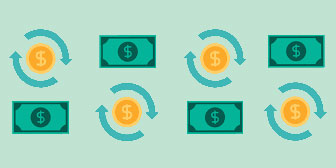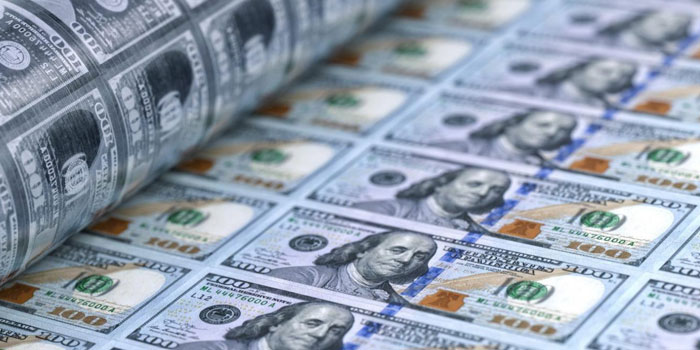Do you know how credit cards can affect your credit score? For many, it can be hard to understand the finer details of actively managing their credit – such as how to use a credit card responsibly and what impact this may have on their overall financial health.
Fortunately, we are here to help break down this often-overlooked area. This blog post will discuss why focusing on the apparent respite use of your cards is essential for maintaining a healthy credit score.
Can your credit card affect your credit score?
The answer is yes! Credit cards are a great way to build credit,t and can impact your credit score.
When you use your credit card, it affects your credit in two ways: one by showing good payment habits and the other by increasing the amount of debt that you owe.
Making timely payments will show that you are responsible for debt and can help raise your score. On the other hand, if you miss payments or fail to pay off your credit card balance, it will harm your credit score.
Additionally, owing more debt money will also harm your credit score since it increases your overall debt-to-credit ratio. To keep your credit score healthy, keep your total debt balance as low as possible.
Maintaining a good relationship with your credit card issuer can also positively affect your credit score. If you can establish good payment habits and manage your balance responsibly, it will reflect positively on the type of borrower that you are.
How Using Your Credit Card Can Affect Your Score

Credit cards can have positive and negative effects on your credit score, and it is important to understand how your credit card usage can influence your score.
Credit cards are one of the most common sources of borrowing, so it's in your best interest to be aware of their impact on your finances.
When used responsibly, a credit card can positively affect your credit score. Making payments on time, utilizing funds only when needed, and keeping balances low are all great ways to maintain a strong score. However, failing to make payments or carry high balances can harm your credit score.
It is important to keep track of your spending and know how much you owe and when payments are due. If you're having trouble managing your debts, consider speaking with a credit counselor or financial advisor to get help developing a repayment plan.
It is also important to remember that your credit score can be impacted by more than just the amount of money you owe. Your payment history, credit utilization ratio (the amount of available credit you are using), and the length of your credit history all play a role in determining your score.
How much debt is too much?

One of the main factors affecting your credit score is how much debt you have compared to your available credit. If you max out all of your credit cards, lenders may see this as a sign that you cannot manage your finances responsibly and will be less likely to lend you money or extend lines of credit.
It is important to keep track of how much debt you have and make sure that your debt to available credit ratio is below 30%. If you have $1000 of available credit, you should have at most $300 outstanding debt.
How Closing a Credit Card Can Hurt Your Credit Score
Closing a credit card is not necessarily the best decision for your finances. Closing a credit card can harm your credit score, reducing available credit and lowering utilization rates.
When you close a credit card, several changes will occur in your credit profile. Firstly, it will reduce the total available credit in your name. This will increase the utilization rate of your other cards, which accounts for 30% of your credit score.
A high utilization rate is a sign to lenders that you are over-extended and need help to keep up with payments.
Additionally, closing a card can decrease your credit report's average age of accounts. This factor comprises 15% of your credit score and is determined by the age of your oldest and newest accounts.
Closing an older account shortens your account's average age, which can lead to a lower credit score.
Does paying off credit card debt raise your credit score?
The short answer is yes; paying off credit card debt can positively affect your credit score.
Credit utilization – the amount of revolving credit you are currently using compared to the total amount of credit available – plays an important role in calculating your credit score.
When you pay off your outstanding balance, it will lower your overall utilization rate and could result in a higher credit score.
It is important to note, however, that paying off your balance does not automatically raise your credit score. Your payment history (up to 35% of your score) will also affect how much and quickly your credit score increases.
If you have missed payments or other negative marks on your credit report, it could take some time to see an impact on your credit score from paying off debt.
Understanding how closing a credit card account could affect your score is important. Closing the card will reduce the total amount of available credit and increase your overall utilization rate. This can lead to a decrease in your credit score.
FAQs
How much do credit cards affect your credit score?
Credit cards can significantly impact your credit score, both positively and negatively. The amount of influence that credit cards exert depends largely on how you manage them.
Responsible use of credit cards – such as making timely payments and keeping balances low – can help raise your credit score over time. Conversely, missing payments or carrying high debt levels can hurt your score.
How does getting a credit card affect your score?
Opening a new credit card account can have a small, temporary impact on your credit score. This is because having more open accounts increases your total available credit, which lowers the portion of that amount you’re using (i.e., your credit utilization rate). Lowering your utilization rate generally helps bolster your score in the short term.
Do credit cards raise your credit score?
Yes, credit cards can raise your credit score. However, this is not an overnight process – it will take time and effort to see meaningful improvements in your score.
To achieve the best possible results from a credit card, make payments on time and keep your balance low relative to your available credit limit (ideally no more than 30%).
Conclusion
In conclusion, it must be stated how important it is to understand the risks and benefits of using credit cards. Properly managing your credit cards can help improve your credit score, while mismanagement can negatively impact you.
Ensure you stay up-to-date on best practices for using credit cards responsibly to enjoy all the financial freedom and flexibility they offer without damaging your credit score.



